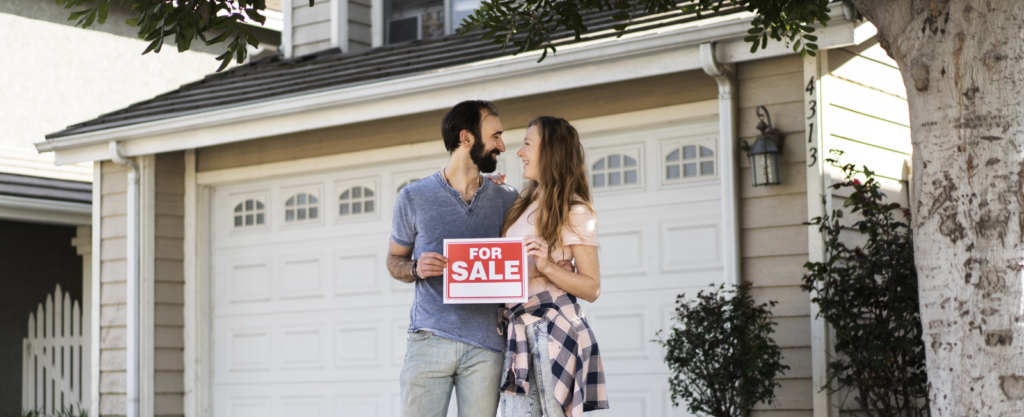Ultimate Property Buyers Guide Sydney 2025
Ultimate Property Buyers Guide Sydney 2025
In 2025 a great property buyers guide Sydney will present a mix of opportunities and challenges. Success hinges on a clear strategy. The right property for you requires a blend of financial planning, location analysis, and expert guidance.
This guide is tailored to help first-home buyers and time-strapped investors navigate Sydney’s dynamic market. By the end, you’ll have the tools and insights needed to make informed property decisions, setting you on the path to success.
1. Understanding Sydney’s Property Market
Key Trends in the Sydney Property Market
Sydney’s property market is always evolving, influenced by local and global factors. In 2025, several trends are shaping the landscape:
- Interest Rates and Affordability: The Reserve Bank of Australia’s potential interest rate adjustments could impact borrowing power. Lower rates may boost demand and increase competition for properties.
- Population Growth and Infrastructure: Major developments like the Western Sydney Aerotropolis are drawing attention to previously overlooked suburbs.
- Sustainability Focus: Buyers are increasingly valuing energy-efficient homes, which align with government incentives.
Supporting Fact:
CoreLogic reports a 4.5% annual growth in Sydney’s property values in 2024, demonstrating resilience in the market despite economic uncertainties.
Forecast for 2025: Opportunities and Challenges
Opportunities abound for buyers who stay informed. Emerging suburbs offer affordability and potential growth, while established areas provide stability. However, challenges include rising construction costs and competition for high-demand properties.
Tools like property data reports and buyer’s agents can help you navigate these complexities and identify the best opportunities.
2. Defining Your Property Goals
Capital Growth vs Rental Yield: Which to Prioritise?
When investing in Sydney’s property market, it’s essential to decide whether capital growth or rental yield aligns with your goals.
- Capital Growth: Ideal for long-term investors looking to build wealth. Properties in established suburbs like Mosman or Surry Hills often offer consistent appreciation.
- Rental Yield: Preferred by investors aiming for steady income. Suburbs with lower entry costs, such as Blacktown or Penrith, typically provide higher yields relative to property value.
Supporting Data:
The 2024 CoreLogic Market Trends Report reveals that Blacktown offers an average rental yield of 4.2%, higher than Sydney’s metropolitan average of 3.6%. [Source]
Tailoring Goals to First-Time Buyers or Investors
For first-time buyers, balancing affordability with long-term value is crucial. Consider government incentives like the First Home Owner Grant, which reduces upfront costs. Investors, meanwhile, should assess market trends and forecasted growth areas to maximise returns.
Pro Tip:
Use tools like Domain’s Property Insights to compare historical price growth and rental yields by suburb. [Source]
3. Financial Planning and Loan Options
Calculating Your Borrowing Power
Understanding how much you can afford is a fundamental step in property buying. Borrowing power depends on income, expenses, existing debts, and savings.
- Seek Expert Advice: Mortgage brokers can provide tailored guidance and highlight options that suit your financial profile.
- Online Tools: Use calculators like those from NAB to estimate your borrowing capacity. [Source]
Overview of Loan Types
Choosing the right loan structure can save thousands in interest. Here’s a breakdown:
- Fixed-Rate Loans: Offer stability in repayments but limit flexibility.
- Variable-Rate Loans: Allow adjustments with market changes but carry unpredictability.
- Split Loans: Combine fixed and variable components, offering a balance of both benefits.
Expert Insight:
According to the Australian Securities and Investments Commission (ASIC), borrowers with split loans often enjoy greater repayment flexibility while mitigating risks associated with rate fluctuations. [Source]
Improving Your Credit Score Before Applying
Your credit score significantly affects loan eligibility and interest rates. Pay off outstanding debts, avoid late payments, and limit new credit applications to boost your score.
Further Reading:
Learn how to improve your credit score at Equifax Australia. [Source]

4. Choosing the Right Suburb
Emerging Hotspots in Sydney for 2025
Even though I predominately work with clients in the Easter and Norther suburbs of Sydney it would be neglectful for me not to mention the emerging suburbs. These present opportunities for investors and especially first-time buyers. Areas undergoing significant infrastructure development typically see increased demand and price appreciation.
- Western Sydney Aerotropolis: Suburbs like Luddenham and Bringelly are benefiting from new transport links and business hubs tied to the Aerotropolis project.
- Southwest Growth Corridor: Suburbs such as Leppington and Austral are experiencing population growth, supported by expanding amenities and improved road networks.
Supporting Data:
The NSW Government’s Western Sydney Growth Report highlights these suburbs as prime candidates for growth, citing infrastructure investments like the Nancy-Bird Walton Airport. [Source]
Established Suburbs with Strong Long-Term Returns
For buyers seeking stability, established suburbs offer predictable market trends and excellent amenities. Examples include:
- Inner West: Areas like Newtown and Balmain remain desirable for their proximity to the CBD and vibrant culture.
- North Shore: Suburbs like Lane Cove and Wahroonga boast excellent schools and transport, making them family-friendly investment choices.
- Eastern Suburbs: King Cross and Paddington are always a great investment or place to live
Pro Tip:
Use tools like REA Group’s Suburb Insights to compare growth rates, demographics, and amenities in established versus emerging suburbs. [Source]
5. Selecting the Best Property Type
Pros and Cons of Different Property Types
Your choice of property type should align with your goals and budget. Here’s a breakdown of common property types:
- Apartments: Typically lower in price and maintenance, they’re ideal for first-time buyers or investors targeting high rental yield. However, apartments may experience slower capital growth compared to standalone houses.
- Houses: Offer greater potential for long-term capital growth due to land value. Houses also provide flexibility for renovations and expansions, but they come with higher upfront and maintenance costs.
- Townhouses: Provide a middle ground, balancing affordability with space and capital growth potential.
Supporting Research:
According to a 2024 study by Domain, houses in Sydney experienced an average annual growth rate of 6.8%, while apartments grew at 4.3%. [Source]
Future-Proofing Your Investment
As sustainability becomes a key consideration for buyers, properties with eco-friendly features are increasingly in demand. Solar panels, energy-efficient appliances, and proximity to green spaces add value and appeal to tenants and future buyers.
Further Reading:
Learn more about sustainable property features in the Green Building Council of Australia’s guide to residential sustainability. [Source]
6. The Role of a Buyer’s Agent
Benefits of Hiring a Buyer’s Agent
Navigating Sydney’s competitive property market can be daunting, especially for first-time buyers or time-poor investors. Engaging a buyer’s agent offers several advantages:
- Expert Market Insights: A buyer’s agent knows market trends, property values, and off-market opportunities.
- Negotiation Expertise: Their experience in securing deals can save you money.
- Time-Saving: Agents handle property searches, inspections, and paperwork, streamlining the process.
Supporting Data:
A 2024 survey by the Real Estate Institute of New South Wales (REINSW) found that 78% of buyers who used agents felt more confident in their purchases. [Source]
Selecting the Right Agent
Choosing the right buyer’s agent is critical. Look for professionals with:
- Local Expertise: Familiarity with Sydney’s suburbs ensures better property matches.
- Strong Reviews: Positive testimonials and referrals indicate trustworthiness.
- Transparency: Clear communication and upfront fee structures build confidence.
Further Reading:
Learn how to evaluate buyer’s agents on the Australian Property Institute’s official site. [Source]
7. Navigating Legal and Regulatory Requirements
Contracts and Conveyancing: What You Need to Know
Legal contracts protect your rights and clarify obligations when buying property. A solicitor or conveyancer ensures these documents meet all legal requirements and safeguards your investment.
- Pre-Purchase Review: Contracts should be reviewed before signing to identify potential risks or hidden costs.
- Cooling-Off Period: Familiarise yourself with cooling-off terms under NSW property law.
Supporting Resource:
The NSW Government provides detailed guidelines for property contracts and conveyancing. [Source]
Understanding Taxes and Fees
Buying property in Sydney involves several costs beyond the purchase price:
- Stamp Duty: A significant expense, but first-home buyers may be eligible for exemptions or concessions.
- Land Tax: Applies to investment properties, depending on value thresholds.
- Lender’s Mortgage Insurance (LMI): Required if your deposit is below 20%.
Pro Tip:
Use Revenue NSW’s Stamp Duty Calculator to estimate costs. [Source]
9. Market Monitoring and Exit Strategies
Why Monitoring Market Trends is Essential
Keeping an eye on market trends helps you make informed decisions about holding, selling, or expanding your property portfolio. Factors to watch include:
- Price Trends: Track growth in your suburb using tools like CoreLogic’s Home Value Index.
- Economic Indicators: Interest rates, unemployment levels, and population growth impact demand and property values.
- Government Policies: Watch for tax changes or incentives that could affect property ownership.
Supporting Resource:
CoreLogic’s Monthly Housing Market Update provides up-to-date insights. [Source]
Creating a Flexible Exit Strategy
An exit strategy ensures you’re prepared to respond to market changes or personal circumstances. Common options include:
- Selling: Best during peak market conditions to maximise returns.
- Refinancing: Useful for accessing equity to fund new investments.
- Holding: Ideal when rental yields are strong and property values are stable.
Further Reading:
Finder’s Property Investment Guide explains how to plan an effective exit strategy. [Source]
10. Tips for Success in Sydney’s 2025 Property Market
- Avoid Common Mistakes: Overpaying, skipping inspections, or ignoring market trends can jeopardise your investment.
- Leverage Technology: Use platforms like Realestate.com.au to access market data, property listings, and suburb insights. [Source]
- Stay Patient and Persistent: The right property may take time, but thorough research and strategic planning ensure better outcomes.
Author’s Opinion: Valerie Davis from House Hunters Top Buyers Agent Sydney
As someone who has guided countless clients through Sydney’s competitive market, I’ve seen the difference preparation makes. One client, an investor with limited time, relied on our agency to secure a property in Kings Cross. Thanks to the area’s growth tied to the gentrification of the area, they’ve already seen an over 15% increase in property value in a year.
For first-home buyers, I recommend prioritising affordability without sacrificing long-term potential. Suburbs with upcoming infrastructure projects, like Leppington, are great starting points. Remember, professional guidance isn’t just a luxury; it’s often the key to making informed and confident decisions.
Sydney’s 2025 property market might seem overwhelming, but with clear goals, financial planning, and a focus on research, it’s entirely possible to succeed.
Property Buyers Guide Sydney
- How do I know if I’m financially ready to buy a property?
Use tools like borrowing power calculators and consult a mortgage broker to assess your financial readiness. - What’s the best suburb for first-time buyers in Sydney?
Suburbs like Leppington or Austral offer affordability and growth potential due to infrastructure developments for first home buyers. - How can a buyer’s agent help me secure a good deal?
Buyer’s agents provide market insights, access to off-market properties, and skilled negotiation services. - What are the hidden costs of buying property in Sydney?
Stamp duty, conveyancing fees, and lender’s mortgage insurance are common expenses. - Are apartments or houses better for investment in 2025?
Houses generally offer stronger capital growth, while apartments can provide higher rental yields, depending on location.








